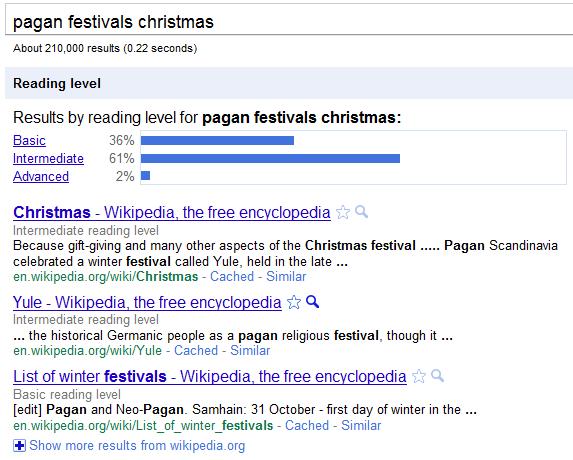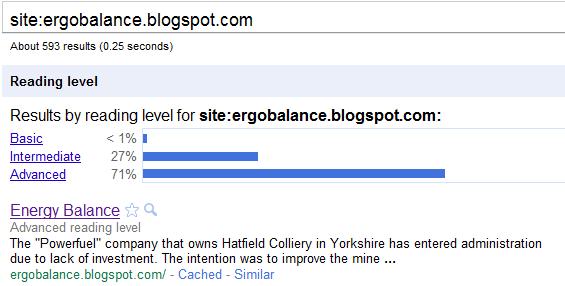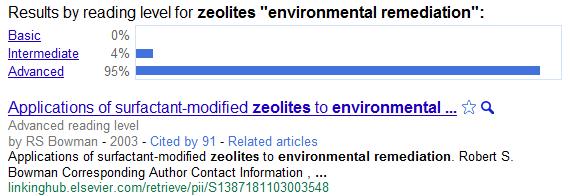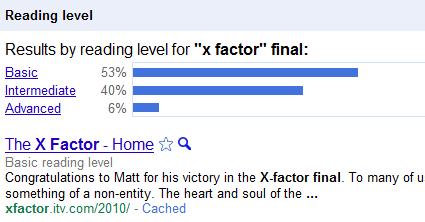Some of you may have seen the article in the Times Higher Education – What will poor Robin do then? Perforate your small bowel. It reminded me of an article I wrote for an in-house newsletter in 1984 when I was working for a pharmaceutical company and which addresses similar issues. Here it is (reference number 3 is the one referred to in the THE headline):
Seated one day at the terminal
I was weary and ill at ease
And my fingers wandered idly
Over the noisy keys (1)
So I decided to cheer myself up, type in a few Christmassy search terms into Medline and see what papers came up. Bingo! 354 hits. However, a glance at some of the titles revealed that the majority were articles on Christmas disease (a form of haemophilia); one was concerned with crystals in the eye called Christmas tree decorations because of their light refractive properties (2); and another was entitled “Small bowel perforation due to a Christmas cake decoration”(3). A broader scan of the literature merely confirmed my initial impression that Christmas merits a government health warning.
It seems that beer drinking is the only festive activity that does not give rise to some class of serious ADR (Adverse Drug Reaction). A group from the Royal Victoria Infirmary, Newcastle have shown that drinking six pints of McEwans Export “causes remarkably little metabolic disturbance”(4). Nevertheless, the volunteers did suffer from headache, nausea, dry mouth and malaise the following morning. It is also interesting to note that the eminent Professor KGMM Alberti was thanked for his “invaluable help”.
Those of you who prefer a drop of uisgebeatha may be interested in a trial conducted to discover whether or not regular drinkers can distinguish single malts from blended whiskey (5). They could not, but the design of the trial has been criticised. A very select group of volunteers were used (surgeons from one unit) and the question “How blind were the volunteers?” was raised (6). Furthermore, were the 36 tastings by each volunteer carried out in one sitting as implied by the study? (6). If so, then LD50’s, despite now being less favoured, may have yielded more useful information.
As for Rudolf, rumours that his red nose is due to excessive intake of Christmas cheer have finally been scotched by a report of two moose involved in motorcycle collisions (7). The crash investigators carefully point out that “One motorcyclist was intoxicated. No evidence of alcohol was found in either moose”.
With respect to Santa Claus himself, it is not surprising that belief in Father Christmas has been found to decline markedly with age and is associated with a rise in “causal reasoning” (8). The poor economic climate has also meant that Santa has had to be given the sack by some department stores (9). It seems that they can no longer afford to provide the necessary “specialist working environment” – namely a grotto.
The shops may be able to get away with making Father Christmas redundant, but British Rail were not so lucky when they tried to economise on their “Santa Specials” (10). One angry customer demanded a refund when he found that although there were elves and pixies as advertised, the train was definitely deficient in fairies. A BR spokesman stated “The man has complained that there were no fairies. Indeed there were not but we did have four children dressed up as elves and pixies. I am reluctant to refund the man’s £1.25 …….because he did have his mince pie and a glass of sherry”.
Which neatly brings me to the nutritional aspect of the Yuletide celebration. This also presents problems. Apart from the cake decorations mentioned earlier, bay leaves may have to be surgically removed (11), and asparagus can give you pongy pee (12). However, you can rest assured that the DHSS has taken steps to ensure that gobbling your turkey does not give you the trots (13); and the EEC is very particular about the size of the crustaceans in your prawn cocktail (14).
In theory, you can always offset any overindulgence in plum pud by participating in some outdoor activity, but this too is beset with perils. The hazards of jogging have been well documented with syndromes such as jogger’s nipple (15), jogger’s liver (16), judo-jogger’s itch (17) and penile frostbite (18) top of the list. If you think cycling is safer, be warned: the Victorians identified a similar catalogue of complaints associated with that pastime including Kyphosis bicyclistarum or cyclist’s stoop, bicycle hernia, cyclist’s neurosis and cyclist’s sore throat (19). Bicycle face was characterised by a “peculiar strained set look, produced by the excessive tension involved in maintaining balance on a two wheeled machine”. More recently a case of unicyclists sciatica has been reported (20).
Indoor pursuits are not much safer: addicts of Rubik’s cube can be incapacitated by cuber’s thumb (21); and prolonged sessions of video games can give rise to unilateral wrist pain referred to variously as Space Invader’s wrist, Asteroids osteoarthritis and pinball palsy (22). But don’t think that being a spectator is free from side-effects. The excitement of watching a football match has been known to cause Celtics fever or “play-off induced ventricular arrhythmias” (23).
If, like me, you are now thoroughly depressed then why not go to a party? There seem to be plenty going on especially in the NHS (24). Since the Chancellor of the Exchequer is intent on cutting NHS expenditure he should perhaps read a paper from the BMJ, which expresses concern at the extent of these unorganised jollifications (24). The situation is sufficiently serious to warrant the recommendation that an administrator be appointed to rationalise this area of hospital life. Strange that the post was not mentioned by Roy Griffiths in the NHS Management Inquiry.
Finally, just to make you feel even worse the morning after, here are a few European translations of the term “hangover”: baksmälla – kickback, katzenjammer – cat misery, and gueule de bois – mouth of wood.
Merry Christmas and a Happy New Year!
References:
- Adapted from A Lost Chord by Adelaide Ann Proctor
- “Christmas Tree Decoration” crystals in the lens Klin Monatsbl Augenheilkd 1983;182(1):15
- Small bowel perforation due to a Christmas cake decoration BMJ 1983;287:1923-1924
- Acute biochemical responses to moderate beer drinking BMJ 1982;285:1770-1773
- Can malt whisky be discriminated from blended whisky? The proof. A modification of Sir Ronald Fisher’s hypothetical tea tasting experiment BMJ 1983;287:1912-1913
- How blind were the volunteers? BMJ 1983;287:1914-1915
- Moose-motorcyle collisions New Eng J Med 1981;305(10):590-591
- Children’s belief in Santa Claus. A developmental study of fantasy and causality J Amer Acad Child Psychiat 1979;18(4):658
- Santa Claus gets the sack in three stores. The Times, Nov 24, 1980
- Railway fairies unfit for elf fanatic. The Daily Telegraph Nov 22, 1979
- Beware the bay leaf BMJ 1980;281:1682
- Volatile organic components in human urine after ingestion of asparagus Clin Chem 1977;23:1941
- Turkeys, safe preparation Health Notice (HN)1977:190
- Long-awaited reform of the prawn laws The Times Aug 8, 1980
- Jogger’s nipples New Eng J Med 1977:297:1127
- Jogger’s liver New Eng J MEd 1980;303:589
- Judo-jogger’s itch New Eng J MEd 1979;300:866
- Penile frostbite, an unforeseen hazard of jogging New Eng J MEd 1977;296:178
- Are exercise ailments cyclical New Eng J MEd 1983;309:858-859
- Unicyclists sciatica – a case report New Eng J MEd 1981;305:231-232
- Cuber’s thumb New Eng J MEd 1981;305:768
- Space-invader’s wrist New Eng J MEd 1981;304:1368
- Celtics fever: playoff induced ventricular arrhythmia New Eng J MEd 1981;305:467-468
- Hospital Christmas Parties BMJ 1980;281:1667-1668
Date originally written: 7th December 1984
Author: Karen Blakeman









